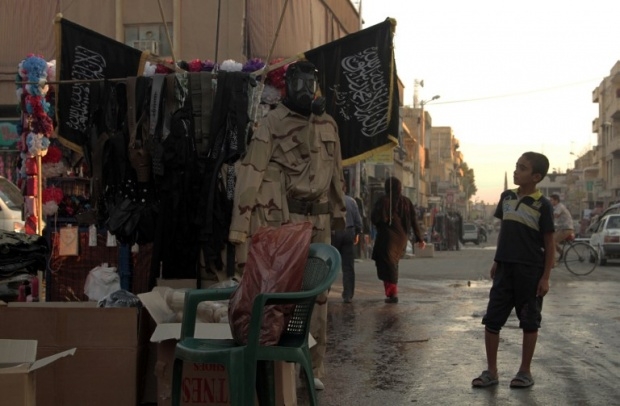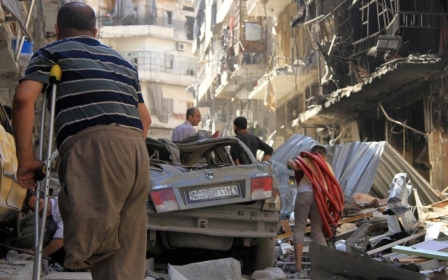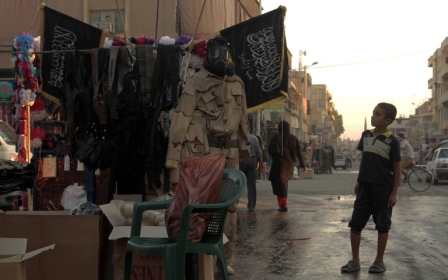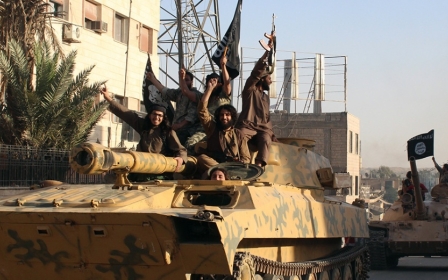Syria's Assad, IS militants avoiding each other on battlefield: data

Forces loyal to Syrian president Bashar al-Assad and Islamic State fighters (IS) in Syria appear to be avoiding each other on battlefield, as they focus their efforts fighting other groups in the war-torn country, data published by NBC news suggests.
Two out of three attacks carried out by IS militants in Syria this year targeted other non-state groups, according to data by Jane’s Terrorism and Insurgency Center’s (JTIC).
The figures suggest that IS and Assad's forces are mostly "ignoring each other," said Matthew Henman, head of JTIC.
"They both recognize there's a mutual benefit in crushing other groups," Henman said.
Only 13 percent of the militants' attacks during the same period — this year through Nov. 21 — targeted Syrian security forces.
The question of whether the interests of Assad and IS are aligning has been raised repeatedly since a US-led coalition began bombing the militant group in Iraq and Syria earlier this year.
In November US Secretary of State John Kerry acknowledged that Assad and IS benefit from each other's presence.
"Assad and ISIL are symbiotic. ISIL presents itself as the only alternative to Assad. Assad purports to be the last line of defence against ISIL. Both are stronger as a result," he said.
Assad - who heads an avowedly secular and pan-Arab Baath ruling party - and IS - a violent group who want to establish an Islamic caliphate - have denounced each other repeatedly.
But the stiff rhetoric has not been followed by military action, as the data suggests.
Wilful neglect?
Syrians say they are not surprised by the statistics.
"The safe haven ISIS got in Raqqa was invaluable in allowing them to organize to take over other parts of Iraq and Syria," said Aboud Dandachi, a Syrian activist from the city of Homs living in Istanbul. “And it was Assad’s policy of ignoring ISIS for years that made that possible.”
Raqqa, a city in eastern Syria with a population of half a million, was seized by IS in 2013.
Although coalition strikes and the regime’s recent raids have now made life for its inhabitants more difficult, the city has become a crucial power centre in a territory that is now bigger than many countries and includes some 6 million to 8 million people.
Edward Dark, the pseudonym of a journalist based in Allepo, said mutual non-aggression is convenient to both IS and Assad.
"Apart from the Sha'er gas fields near Homs which have exchanged hands fiercely, ISIS is not threatening the vital areas of regime control, namely the capital and the coast. The regime is not going to go after ISIS in hard to reach areas in the east while ignoring the grievous threat posed by other rebels on its door step in Damascus," said Dark.
"ISIS also does not consider fighting the regime a priority; it wants to establish first a foremost a functioning state for itself and consolidate its territory and resources there. This is why other rebel groups are more of a threat to it than the regime," he added.
In the course of the nearly three-year war, Assad has strategically picked his battles with various rebel factions, analysts say, first going after the ones that he believed to be domestic political threats, which in turn allowed IS to grow stronger.
"Even before ISIS gained control of eastern Syria, the Syrian regime had largely abandoned the area to focus on the more populated western areas of the country; and it largely left ISIS undisturbed once the group was in power," said Sarah Birke, the Economist’s Middle East and North Africa correspondent.
Birke said that IS’s growth was helpful to Damascus’s efforts to portray the opposition as "terrorists".
Assad has denied that he encouraged the rise of extremist groups, like IS, in order to discredit opposition to his rule. In a recent interview with Paris Match, describing the group as an enemy and saying that the "army is winning" its fight against terrorists.
Selling oil to Assad
Ghassan Ibrahim, a London-based Syrian commentator who is critical of Assad's rule, recently told MEE that IS militants are primarily concerned with fighting Syrian rebel groups.
"The regime casualties at the hands of IS militants are not the result of a consistent policy by the group," said Ibrahim.
"IS's clashes with regime forces are infrequent and are usually over capturing energy resourceful areas," he added, noting that "despite this, the regime often buys oil from IS."
France’s foreign minister said in June that the Islamic State are selling oil from captured oil fields to Assad’s government.
"We have proofs that when ISIL has taken over oil it has sold oil to the [Bashar al-Assad] regime," he said.
"Officially they are combating each other but in fact they are very often helping each other."
His views were echoed in July by Omar Abu Leyla, spokesman for the opposition group Free Syrian Army.
The "regime is playing a dangerous game. For the past ten days it has been bombing areas under IS control, but causing very few IS casualties," the rebel spokesman said.
"At the same time, there are secret channels between IS and the regime. IS sells oil and gas to the regime through businessmen. There is no direct dealing between IS and the regime, but there is a lot of proof that these channels exist," he said.
IS are now thought to be the wealthiest militant Islamic organisation on Earth, with the spoils from raids on banks, on civilians, donations from abroad and oil money thought to have left them with over $2 bn.
Middle East Eye propose une couverture et une analyse indépendantes et incomparables du Moyen-Orient, de l’Afrique du Nord et d’autres régions du monde. Pour en savoir plus sur la reprise de ce contenu et les frais qui s’appliquent, veuillez remplir ce formulaire [en anglais]. Pour en savoir plus sur MEE, cliquez ici [en anglais].





